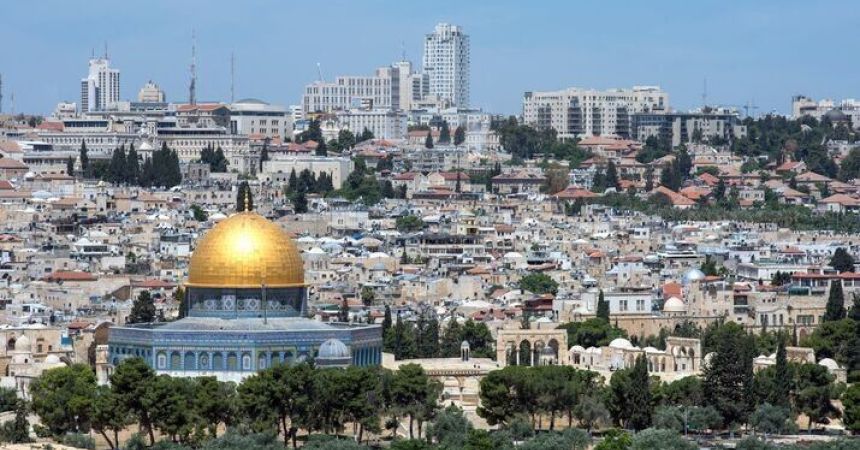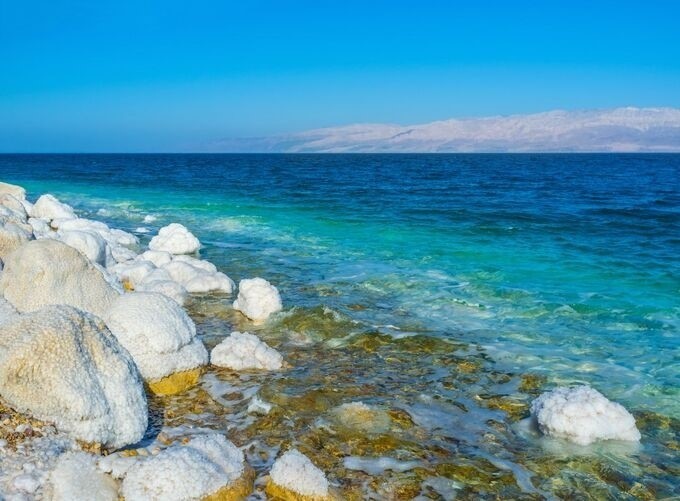
Israel Travel: Clothing Tips and Advice
Traveling to Israel offers a unique blend of experiences, from exploring ancient historical sites to enjoying the vibrant nightlife of Tel Aviv. To make the most of your trip to Israel, it’s important to pack appropriately for the various climates, cultural norms, and activities you’ll encounter. This comprehensive guide will help you decide what to wear in Israel, covering everything from seasonal clothing and cultural considerations to special occasions and practical tips.
Understanding Israel’s Climate
Seasonal Variations
Israel’s climate varies significantly across its regions, influenced by its geographical diversity. Here’s a brief overview of what to expect in each season:
Spring (March to May)
- Temperature: Mild and pleasant, with average highs ranging from 20°C to 25°C (68°F to 77°F).
- Weather: Blooming landscapes and occasional rain showers.
Summer (June to August)
- Temperature: Hot and dry, with average highs between 25°C and 35°C (77°F to 95°F).
- Weather: Humid along the coast and extremely hot in the desert areas.
Autumn (September to November)
- Temperature: Warm and comfortable, with average highs between 20°C and 30°C (68°F to 86°F).
- Weather: Mild temperatures and less humidity.
Winter (December to February)
- Temperature: Cool and rainy, with average highs ranging from 10°C to 18°C (50°F to 64°F).
- Weather: Colder in the highlands, occasional snow in Jerusalem and the northern regions.
Regional Variations
Different regions in Israel experience distinct climates:
- Coastal Areas (Tel Aviv, Haifa): Mediterranean climate with hot, humid summers and mild, wet winters.
- Inland Areas (Jerusalem): Hot, dry summers and cool, wet winters with occasional snowfall.
- Desert Regions (Negev, Dead Sea, Eilat): Extremely hot summers and mild winters.
- Northern Regions (Galilee, Golan Heights): Mild summers and cold, wet winters.
What to Wear: General Tips
-
Lightweight and Breathable Fabrics
Given Israel’s generally warm climate, especially in the summer, opt for lightweight and breathable fabrics like cotton, linen, and moisture-wicking synthetics. These materials help keep you cool and comfortable.
-
Layers for Versatility
Weather can change quickly, especially in mountainous regions and during transitional seasons. Pack layers that you can add or remove as needed. This is particularly important if you’re traveling between different regions.
-
Modest Clothing for Religious Sites
When visiting religious sites, both men and women should dress modestly. This typically means covering your shoulders and knees. Women might consider packing a lightweight scarf or shawl to cover their shoulders or head when necessary.
-
Comfortable Footwear
You’ll likely be doing a lot of walking, whether exploring ancient ruins, hiking in nature reserves, or strolling through markets. Comfortable, sturdy footwear is a must. Consider packing:
- Walking Shoes: Comfortable sneakers or walking shoes for city tours and light hiking.
- Sandals: Breathable sandals for hot days and beach outings.
- Hiking Boots: If you plan on hiking in more rugged areas like the Negev Desert or Golan Heights.
-
Sun Protection
The Israeli sun can be intense, especially in the summer months. Protect yourself with:
- Hat: A wide-brimmed hat or baseball cap.
- Sunglasses: UV-protective sunglasses to shield your eyes.
- Sunscreen: High SPF sunscreen to protect your skin.
-
Swimwear
Don’t forget your swimwear! Israel boasts beautiful beaches along the Mediterranean and Red Seas, as well as unique experiences like floating in the Dead Sea. A couple of swimsuits or swim trunks will come in handy.
-
Warm Clothing for Winter
If you’re traveling to Israel during the winter months or visiting mountainous regions, pack warm clothing. This includes:
- Coat or Jacket: A warm, waterproof coat or jacket.
- Sweaters and Hoodies: Layering pieces to stay warm.
- Scarf, Hat, and Gloves: For colder days and nights, especially in Jerusalem and northern regions.
Packing for Different Activities
Beach and Water Activities
If you plan on spending time at the beach or engaging in water activities, consider packing:
- Beach Towel: A quick-dry towel for beach outings.
- Water Shoes: Protect your feet from rocky beaches or sharp coral.
- Snorkeling Gear: If you prefer using your own gear, bring a mask, snorkel, and fins.
Hiking and Outdoor Adventures
For hiking and outdoor enthusiasts, pack gear that suits your adventures:
- Daypack: A small backpack for carrying essentials during day trips.
- Water Bottle: Stay hydrated, especially in hot weather.
- Hiking Poles: If you’re planning on tackling more challenging trails.
- Multi-Tool: A handy tool for various outdoor needs.
Religious Sites and Cultural Experiences
When visiting religious sites or participating in cultural experiences, pack items that show respect for local customs:
- Scarf or Shawl: For women to cover their heads or shoulders when required.
- Long Pants or Skirt: For both men and women when visiting religious sites.
Nightlife and Urban Exploration
For evenings out in Tel Aviv or Jerusalem, you might want to dress up a bit:
- Smart Casual Attire: Nice jeans or trousers, a stylish top or blouse, and comfortable yet chic shoes.
- Light Jacket or Wrap: Evenings can be cool, so bring a light jacket or wrap.
Seasonal Packing Lists
Spring (March to May)
Spring in Israel is mild and pleasant, making it a great time to visit. Here’s what to pack:
- Light Layers: T-shirts, long-sleeved shirts, and light sweaters.
- Comfortable Footwear: For walking tours and outdoor activities.
- Rain Jacket: Spring can bring occasional showers.
- Sun Protection: Hat, sunglasses, and sunscreen.
Summer (June to August)
Summer is hot and dry, especially in coastal and desert areas. Pack the following:
- Lightweight Clothing: Breathable fabrics like cotton and linen.
- Swimwear: For beach days and the Dead Sea.
- Sun Protection: Hat, sunglasses, and sunscreen.
- Comfortable Sandals: For hot weather.
- Evening Wear: Light dress or smart casual attire for evenings out.
Autumn (September to November)
Autumn is another great time to visit, with cooler temperatures and fewer tourists. Pack:
- Layers: T-shirts, long-sleeved shirts, and a light jacket.
- Comfortable Footwear: For exploring cities and nature reserves.
- Rain Gear: A rain jacket or umbrella for occasional showers.
- Smart Casual Attire: For dining out or nightlife.

Winter (December to February)
Winter can be chilly, especially in Jerusalem and northern regions. Here’s what to pack:
- Warm Clothing: Sweaters, a coat, and warm layers.
- Rain Gear: Waterproof jacket and shoes for wet weather.
- Comfortable Footwear: For walking tours and exploring historical sites.
- Scarf, Hat, and Gloves: For colder days and nights.
- Layers: For adapting to varying indoor and outdoor temperatures.
Special Considerations for Women
Modesty
Modesty is especially important when visiting religious sites. Women should bring clothing that covers the shoulders and knees. A lightweight scarf or shawl can be useful for covering up when necessary.
Footwear
Comfortable shoes are crucial as you'll likely be doing a lot of walking. Sandals and closed-toe shoes are both good options, depending on the weather and terrain.
Swimwear
Israel's beaches and the Dead Sea are popular destinations. Pack a swimsuit and a cover-up for modesty when not in the water.
Cultural Sensitivity
When in more conservative areas, such as religious neighborhoods or small towns, dressing modestly is respectful and appreciated.
Special Considerations for Men
Modesty
Men should also dress modestly when visiting religious sites, ensuring shoulders and knees are covered. Avoid wearing tank tops and shorts in these areas.
Footwear
Comfortable shoes are essential. Sneakers or walking shoes are great for city exploration, while sandals are ideal for the beach and hot weather.
Swimwear
Pack swim trunks for beach outings and Dead Sea visits. A rash guard can provide additional sun protection.
Cultural Sensitivity
Respect local customs by dressing modestly in conservative areas and religious sites.
Practical Tips for Packing
Israel is known for its beautiful handicrafts, textiles, and unique souvenirs. Leave some space in your luggage to bring home a few treasures.
Pack a Reusable Bag
A foldable, reusable bag can be handy for shopping trips, beach days, or carrying snacks and water during day trips.
Use Packing Cubes
Packing cubes can help you organize your luggage and make it easier to find items without unpacking everything.
Don’t Overpack
It’s tempting to pack for every possible scenario, but try to stick to essentials and versatile clothing items. Overpacking can make your luggage heavy and cumbersome.
Check Airline Baggage Policies
Before you pack, check your airline’s baggage policies regarding weight limits and size restrictions to avoid extra fees.
Sample Packing List
To help you get started, here’s a sample packing list for a two-week holiday in Israel:
Clothing
- 5-7 T-shirts or tops
- 2-3 Long-sleeved shirts
- 2-3 Pairs of shorts
- 2-3 Pairs of pants or skirts
- 1-2 Dresses (for women)
- 1 Lightweight jacket or sweater
- 1 Warm coat (if traveling in winter)
- 1 Scarf or shawl
- 1 Hat
- 1 Pair of sunglasses
- 1-2 Pairs of swimwear
- 1 Pair of walking shoes
- 1 Pair of sandals
- 1 Pair of hiking boots (if needed)
- 1 Pair of water shoes (if needed)
Travel Essentials
- Passport and visa (if required)
- Travel insurance documents
- Copies of important documents
- Prescription medications and first aid kit
- Over-the-counter medications
- Hand sanitizer and toiletries
- Phone and charger
- Power adapter
- Camera and accessories
- Headphones
- Cash and credit/debit cards
- Money belt or pouch
Activity-Specific Items
- Beach towel
- Snorkeling gear
- Daypack
- Water bottle
- Hiking poles
- Multi-tool
- Reusable bag
Seasonal Items
- Rain jacket (spring and autumn)
- Warm layers (winter)
- Lightweight clothing (summer)
Packing for Israel: Preparing for Diverse Climates
Packing for a holiday in Israel requires careful consideration of the country’s diverse climate, cultural norms, and your planned activities. By following this guide and packing thoughtfully, you can ensure a comfortable and enjoyable trip. Whether you’re exploring ancient historical sites, relaxing on beautiful beaches, or hiking through stunning landscapes, being well-prepared will help you make the most of your Israeli adventure. Safe travels!



